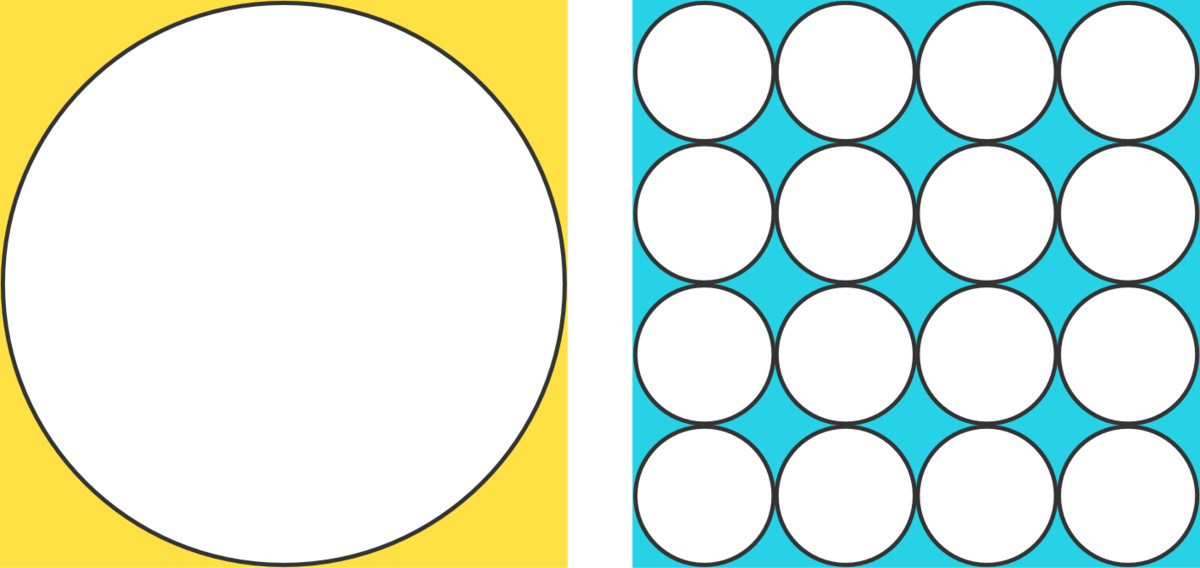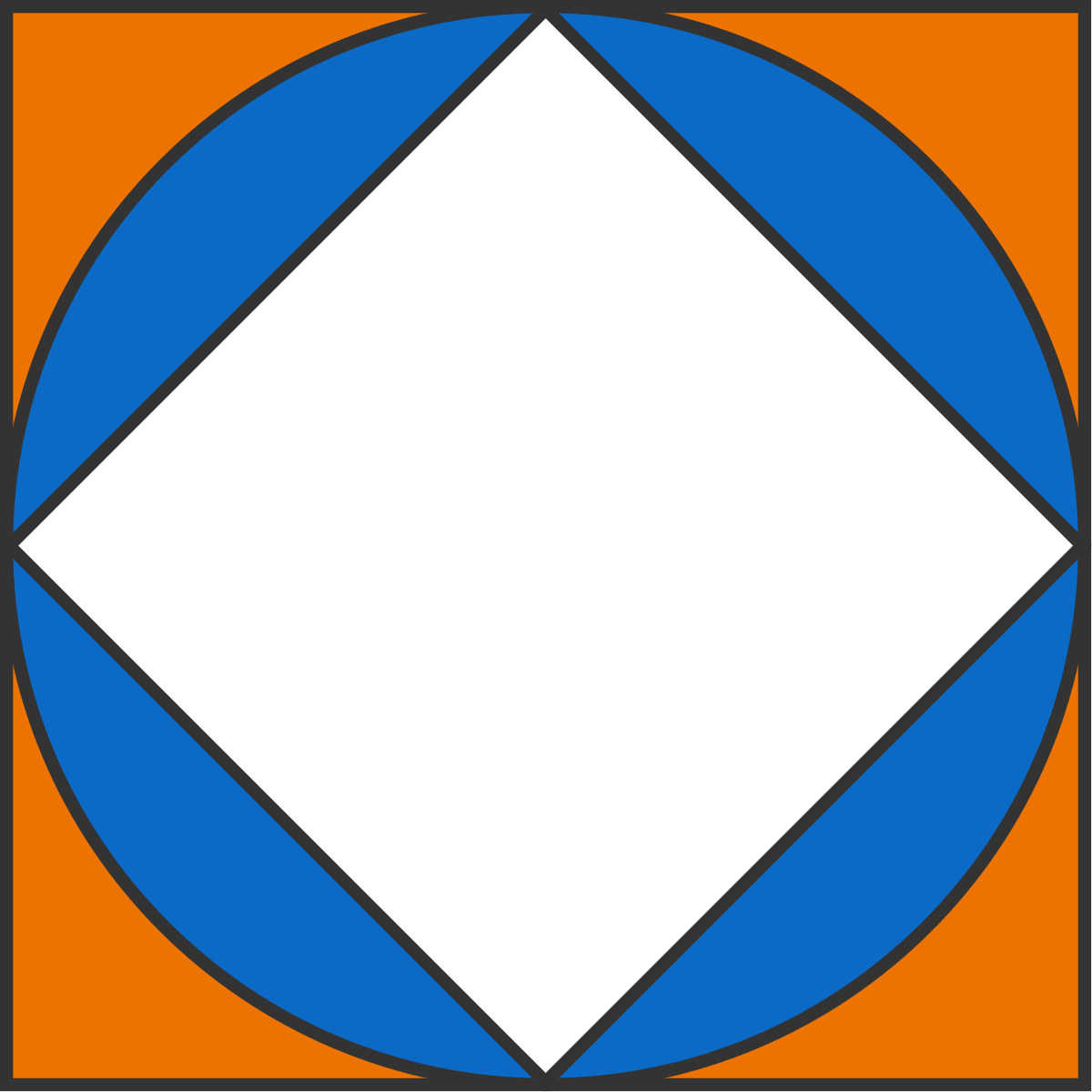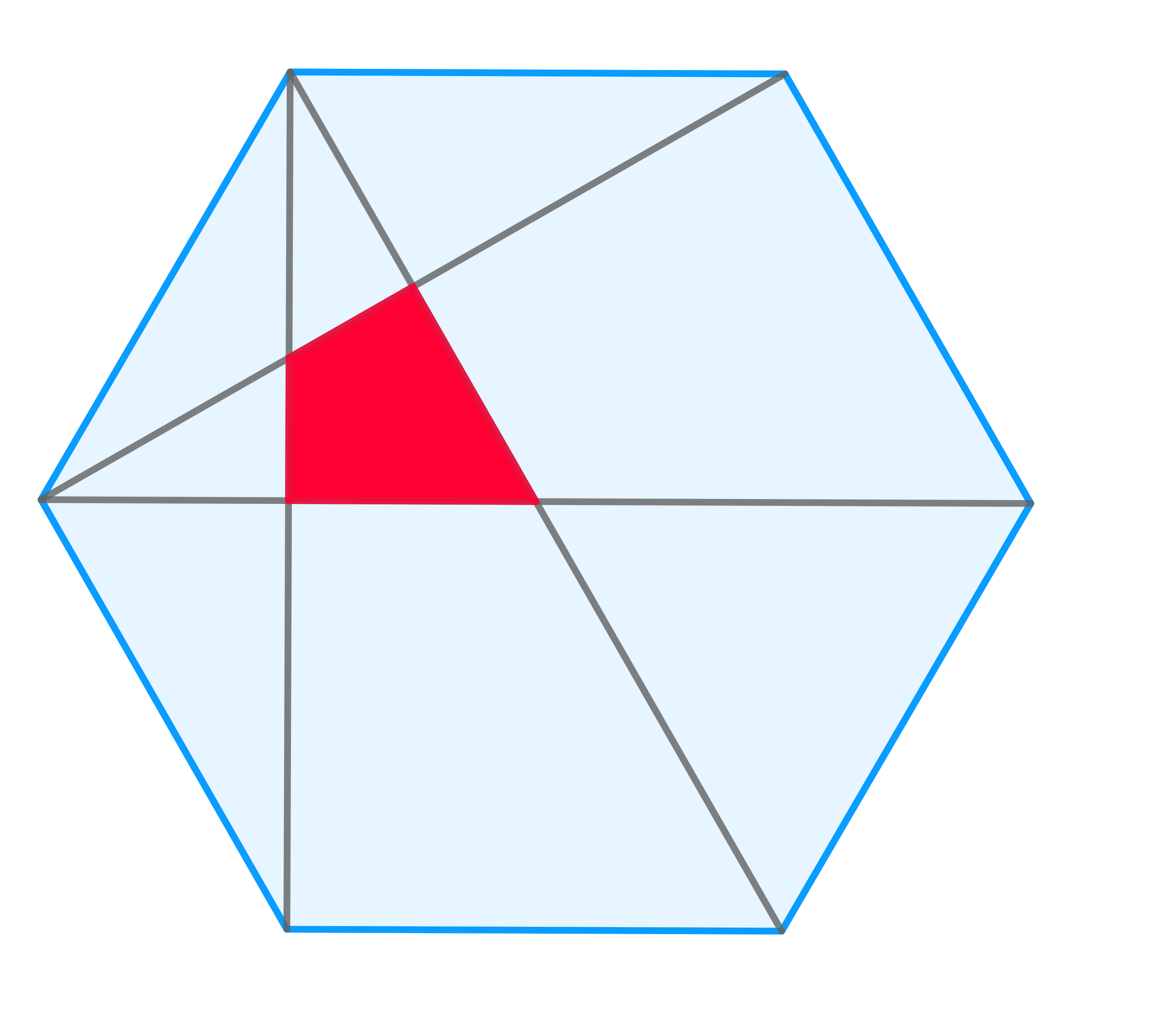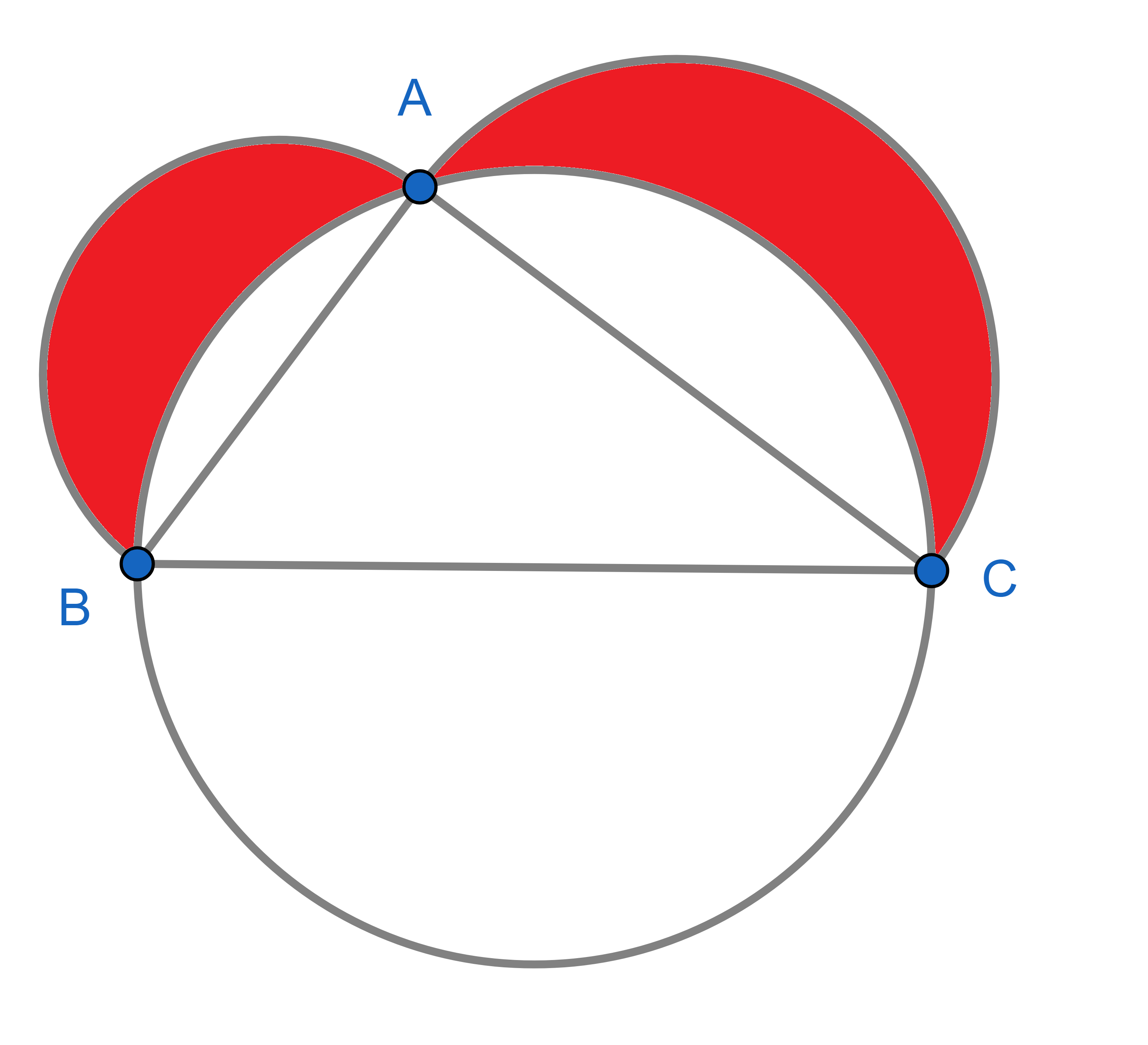Problems
On the left there is a circle inscribed in a square with side \(1\). On the right there are \(16\) smaller, identical circles, which all together fit inside a square of side \(1\). Which area is greater, the yellow or the blue one?

A circle is inscribed in a square, and another square is inscribed in the circle. Which area is larger, the blue or the orange one?

In a square, the midpoints of its sides were marked and connected to the vertices of the square. There is another square formed in the centre. The side length of the large square is \(10\). Find the area of the smaller square. (That is, the red one)

In a parallelogram \(ABCD\), point \(E\) belongs to the side \(AB\), point \(F\) belongs to the side \(CD\) and point \(G\) belongs to the side \(AD\). We know that the marked red segments \(AE\) and \(CF\) have equal lengths. Prove that the total grey area is equal to the total black area.

In a regular hexagon of area \(72\), some diagonals were drawn. Find the area of the red region.

We have a triangle \(\triangle ABC\) with side lengths \(|AB|=3\), \(|AC|=4\) and angle \(\angle BAC=90^{\circ}\). A circle is drawn with side \(BC\) as diameter, and two semicircles are drawn with sides \(AB\) and \(AC\) as diameters. Find the area of the red part.

There are 8 students in an online chess club. Show that some two of them were born on the same day of the week.
Ramesh has an infinite number of red, blue and green socks in his drawer. How many socks does he need to pick from the drawer at random to guarantee he will have at least one pair of socks of one colour?
There are \(6\) people playing a game online together. Among any \(3\) people at least \(2\) people know each other. Show that there is a group of \(3\) people that all know each other.
On a certain planet the time zones can only differ by a multiple of \(1\) hour and their day is divided into hours in the same way Earth’s day is divided into hours. Show that if we pick \(25\) cities on that planet, some two cities will have the same local time.